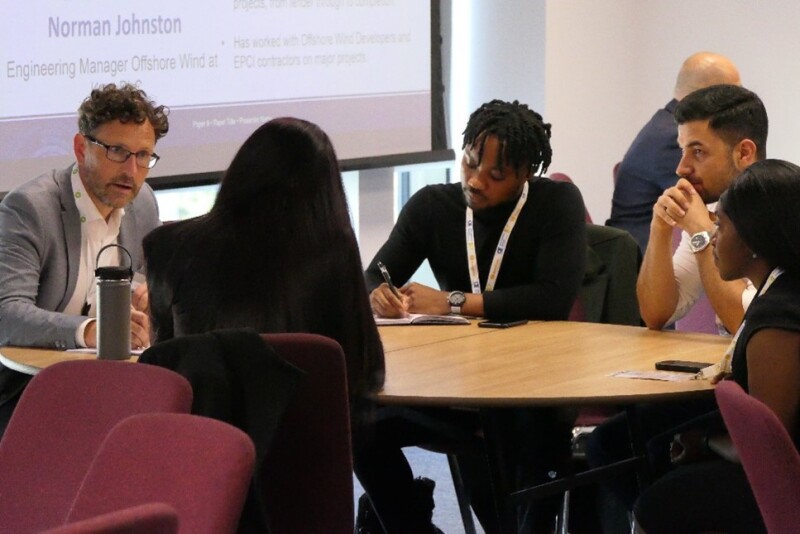Future talent is a huge focus of mine, and over the past few years I have seen some big changes in how the industry is reaching out to younger audiences. SPE Offshore Europe took place in Aberdeen in early September, and it was fantastic to see how much others were focused on this, too.
The energy industry has a controversial perception, particularly for younger audiences and the public. Doubly so in Europe. This raises a lot of doubt for people considering a career in the industry, with governments, activists, and even energy companies themselves are being vocal about a renewable energy leading future. Many are impatient for a cleaner industry after a long period of debate and delay, so where does that leave traditional engineering roles?
Professionals established in the industry seem confident that there is a long future for oil and gas energy and products, and with good reason. With an increasing energy demand, and little discussion around replacing the petrochemical byproducts our infrastructure is dependent on, completely removing oil and gas energy/products doesn’t seem realistic, even with substantial growth in the renewable sector.
This puts young people intending to work in this field in an unusual position. While traditional roles are starting to change, there is still a vital need for fundamental technical skills going forward. So, should young people train up for traditional roles that are in demand now, even though some are vocal about how quickly it will be replaced? And will universities teach sufficient courses, or will the growing trend of cutting traditional P. Eng degrees continue?
It is also a complicated issue, given the way regional factors affect the need, availability, and desire to change. So, as a young professional in the energy industry, how do you commit your time and efforts while also ensuring that that you will have a secure career in the long term?

I saw at Offshore Europe that the industry is collectively recognizing that young people have a very significant role to play, and if we don’t get new, ambitious, and creative talent in the industry now, the technological advances being discussed in SPE’s technical sessions may not be implemented, maintained, or advanced to their full potential. There is a real risk that without investment in new talent, the progress in the industry will slow down at a time we need it to speed up.
Current projects on carbon capture, utilization, and storage (CCUS) and hydrogen are not short-term plans. We are at the early stages of a long-term gradual shift in the energy mix. That means that those working on these new technologies now are not the people who will be keeping them running once the infrastructure has caught up with innovation. It will be those who are currently studying at university, or even younger, who will be vital to ensure we have a safer and more-sustainable energy mix.
It seems evident from working with both large and smaller companies that they are focused on attracting new people and new skills. Companies are actively seeking to work with SPE to support our members, which is an exciting prospect.

At this year’s Offshore Europe (OE), large and small companies alike played active roles in supporting the activities we had planned for students and young professionals as well as diversity sessions. This was branded under the new initiative “OE Future Talent and Diversity Events.” The exhibition floor also hosted a Future Talent Hub which received equal attention and cooperation from companies across the industry.
Sessions included working with schools’ career guidance professionals, panel sessions exploring entrepreneurship, skills workshops, and exploration of nontraditional roles. Similar challenges were echoed across multiple areas of the conference, including a keynote session on strategies for talent attraction and retention, and how we can excite young people to join this unique industry.
What is even more optimistic is that we are also seeing similar levels of engagement at our Annual Technical Conference and Exhibition (ATCE) and other events. New and longstanding supporters of SPE programs are eager to meet with young members at our events. This stronger collaboration is leading to unique career opportunities for our program participants.

After a period of instability, the industry is now excited to fully support the new engineers who will actually be implementing the cleaner, more secure, and sustainable future that we are all striving for.
So, if you are a young engineer concerned about what roles will be available in 10 to 20 years’ time, now is a great time to get involved. Jobs will change and new skills and technology will be needed, but if we want to achieve ambitious targets, we need people to make that happen.
As you begin your career you will continue to develop your own set of skills, learn more, and strengthen your career longevity. You are not limited by your degree, and you do not stop learning when you get a job. So, if you are passionate about a better future, you are already on your way to be part of the solution. Jobs will change but skills will always be important.

